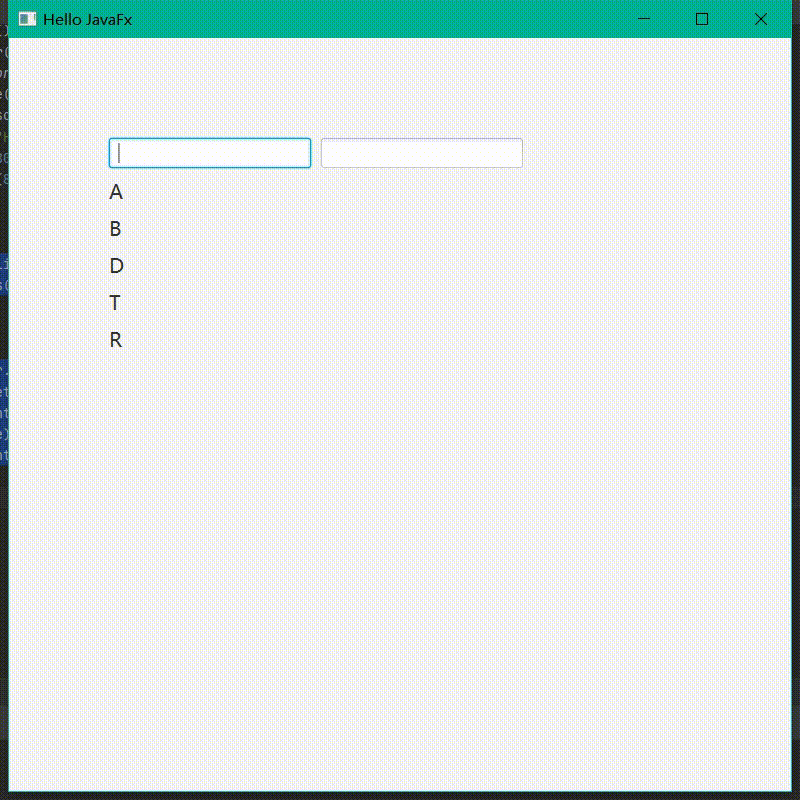绑定 集合的valueAt()方法
作用:valueAt(index)返回指定index索引下的数据,通过该方法返回的数据可以随着原集合对应位置的数据改变而改变,即绑定到集合的对应位置
ObservableList<String> list = FXCollections.observableArrayList("a", "d", "c");
SimpleListProperty<String> listProperty = new SimpleListProperty<>(list);
// 固定索引
ObjectBinding<String> value = listProperty.valueAt(0);
System.out.println("value.get() = " + value.get());
listProperty.set(0, "aa");
System.out.println("value.get() = " + value.get());
SimpleIntegerProperty integerProperty = new SimpleIntegerProperty(0);
// 可观察索引
ObjectBinding<String> value1 = listProperty.valueAt(integerProperty);
System.out.println("value1.get() = " + value1.get());
integerProperty.set(1);
listProperty.set(1, "bb");
System.out.println("value1.get() = " + value1.get());
value.get() = a
value.get() = aa
value1.get() = aa
value1.get() = bb
案例
修改列表中指定位置的字符串,并实时显示
创建控件和数据
VBox vBox = new VBox(10); HBox hBox = new HBox(10); TextField tx1 = new TextField(); TextField tx2 = new TextField(); hBox.getChildren().addAll(tx1, tx2 VBox listData = new VBox(10); // 数据 ObservableList<String> list = FXCollections.observableArrayList("A", "B", "D", "T", "R"); SimpleListProperty<String> listProperty = new SimpleListProperty<>(list);显示区域
// 填充标签数据 for (int i = 0; i < list.size(); i++) { Label label = new Label(); label.setFont(new Font(20)); label.textProperty().bind(listProperty.valueAt(i)); listData.getChildren().add(label); }监听事件
tx2.textProperty().addListener((observable, oldValue, newValue) -> { if (newValue.equals("")){ return; } try { int i = Integer.parseInt(tx1.getText()); listProperty.set(i, newValue); System.out.println("listProperty.get() = " + listProperty.get()); }catch (Exception e){ System.err.println("ERROR"); } });listProperty.get() = [A, B, a, T, R]
listProperty.get() = [A, B, a'a, T, R]
listProperty.get() = [A, B, aaa, T, R]
listProperty.get() = [A, B, aaaa, T, R]
listProperty.get() = [A, B, 阿阿阿阿, T, R]
